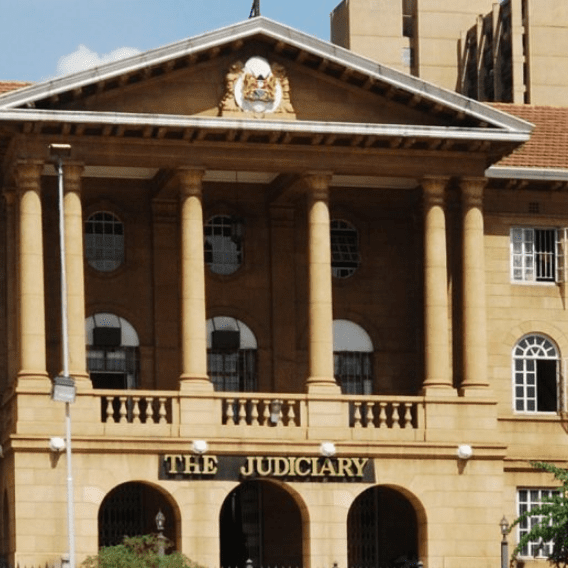

The Judiciary is one of the three State organs established under Chapter 10, Article 159 of the Constitution of Kenya. It establishes the Judiciary as an independent custodian of justice in Kenya. Its primary role is to exercise judicial authority given to it, by the people of Kenya.
The institution is mandated to deliver justice in line with the Constitution and other laws. It is expected to resolve disputes in a just manner with a view to protecting the rights and liberties of all, thereby facilitating the attainment of the ideal rule of law.
The Judiciary and its related institutions (Judicial Service Commission (JSC), Kenya Law, Tribunals and the Kenya Judiciary Academy (KJA) perform the following functions;
The judicial system in Kenya is defined by 15 articles spanning from Article 159 (judicial authority) to article 173 (Judiciary Fund) contained in the new constitution of Kenya.
In Kenya, the courts under the Constitution operate at two levels, namely; Superior and Subordinate courts.
The Court system has been decentralized with the Supreme Court and the Court of Appeal having their own Presidents and the High Court having a Principal Judge as heads of the respective institutions.
The Supreme Court of Kenya is established under Article 163 of the Constitution of Kenya. It comprises of Seven judges: the Chief Justice, who is the president of the Court, the Deputy Chief Justice, who is the deputy to the Chief Justice and the vice-president of the Supreme Court and five other judges.
The Court of Appeal is established under Article 164 of the Constitution of Kenya 2010.
The High Court is established under Article 165 and it consists of a number of judges to be prescribed by an Act of Parliament. The Court is organized and administered in the manner prescribed by an Act of Parliament. The Court has a Principal Judge, who is elected by the judges of the High Court from among themselves.
The Judiciary also consists of the Environment and Land Court as well as the Employment and Labour Relations Court which are courts of equal status as the High Court.
The Environment and Land Court is established under the Environment and Land Court Act 19 of 2011.
The Employment and Labour Relations Court is established under Article 162 (2) (a) of the Constitution of Kenya 2010. The Court is operationalised under the Employment and Labour Act No.20 of 2011.
The subordinate courts are established under Article 169. They consist of the Magistrates’ Courts, Kadhis Courts, Court Martial, and any other court or local Tribunal established by an Act of Parliament.
To administer justice in a fair, timely, accountable and accessible manner, uphold the rule of law, advance indigenous jurisprudence and protect the constitution.
An independent institution of excellence in the delivery of justice to all.
The Judiciary is guided by the following core values:</p> <p>Professionalism<br /> Integrity<br /> Diligence<br /> Team work<br /> Courage<br /> Humility
Accessibility Tools